Henkel, Kohinoor Tech partner for training next-gen mechanics
India will require 3.5 million mechanics by 2020, of which an estimated 1.5 million would lack training in vehicle repair.
Collaboration between the automotive industry and academia in India is fast growing. More and more vehicle manufacturers and suppliers are tying up with educational institutes across the country in a bid to nurture, train and get future-ready the next generation of skilled personnel, on the shop floor, in workshops and in the aftermarket.
Yet another instance of this trend is the coming together of Henkel Adhesives Technologies India (Henkel India) and the Mumbai-based Kohinoor Technical Institute (KTI) to open a vehicle service training centre in Kurla, Mumbai on October 5. While Henkel India is a leading solution provider for adhesives, sealants and functional coatings, KTI is a well-known vocation training institute for technical course.
The new centre, the third after the ones in Pune and Panvel, aims to train new students and workshop technicians in the latest vehicle repair technologies. The two firms have partnered in this initiative to offer training that will equip students to learn reliable and high- quality vehicle repair and maintenance (VRM) services.
The training centre in Kurla, Mumbai has a stripped-down car and motorcycle to facilitate practical hands-on training.
Henkel India estimates that the country will require 3.5 million mechanics by the year 2020, out of which 1.5 million would lack formal training on vehicle repair process. The centre, in its own way, aims to address these challenges of skill development in India. Henkel says it has developed a specially designed curriculum for students of the automotive course at KTI, including the correct maintenance procedures and repair process for vehicles.
Commenting on the training facility, Manish Singhal, business director of Henkel’s General industry adhesive business in India, said, “Henkel is a global leader in adhesives, sealants and functional coating solutions. We continuously develop adhesive and sealant solutions together with leading automotive manufacturers for more reliable, lighter and safer vehicles. Our mission in the automotive aftermarket division is to bring the same high-performance solution to our customers. This facility, which we have developed along with KTI, is designed to make sure that future mechanics receive the same hands-on training on quality products that will help them start performing from day one.”
Teaching 'em to be industry-ready
Singhal said that the objective for the third centre is to enhance the skillsets of not just the students but also mechanics working in workshops, as many of them do not possess formal training. The mechanics will be able to utilise the facility to enhance their knowledge and skills with the latest technology and practices in the automotive field. He said Henkel India is working with KTI for combining the teaching strength with its technology and process.
Makarand Vagaskar, COO, KTI, said: “At KTI, it is our earnest effort to impart the best-in-class industry training to our students, thereby equipping them for their professional careers. Our exclusive partnership with Henkel, by which we have set up VRM training centres at KTI Pune last year and Panvel earlier this year, and now at Kurla equips our students with specialised hands-on training. We have a plan to also open another centre at Nashik.”
Right: Makarand Vagaskar, COO, KTI; Manish Singhal, business director of Henkel’s General industry adhesive business in India and Shilip Kumar, country president – India, Henkel Adhesives Technologies, seen inaugurating the training centre at Kurla, Mumbai.
"What we believe is that in industries like automotive, technologies are changing very rapidly. Our competence is in training and imparting knowledge to the students. Our forte is not technology per se, so it is this strength that Henkel brings to us in terms of its products and offerings and their application in vehicle repair and maintenance. Our faculty has already undergone intensive training while the course and training methodology will be integrated into our curriculum. The automobile service training certification is for a period of 12 months; we will integrate the new module which Henkel has provided for our students, taking the best of its techniques that are used in the real world," added Vagaskar.
He further said that KTI has always focussed on practical training. The course consists of 30 percent theory and 70 percent practical work; this ensures that students who complete the course are well equipped to undertake any type of repairs or maintenance. "The automobile market is growing and will grow in the days to come. Obviously, there is going to be a need for skilled professionals who will be able to undertake the maintenance. So there is a blend of a technical prowess of a global giant like Henkel and our expertise in the technical institute which I think is the essence of the partnership," said Vagaskar.
According to the two companies, the first batch will train around 70 students in engine repair, body care and maintenance. Additionally, the course will also allow company employees and individual mechanics to undertake the course as per their requirement at no cost. To ensure the trained personnel are job-ready, the partners will
also conduct a test which will help certify the trainees. Henkel India aims to train at least 500 individuals from each of its centres.
Automotive segment a high-growth area
According to Shilip Kumar, country president, Henkel Adhesives Technologies (India), "India is one of the most important countries for us globally in terms of investing in the country across several of our businesses. Among them, the automotive business is one major segment where we are investing. In automotive, we have two arms – the OEM arm where a group of our businesses explore supplies directly to OEMs; this gives us a lot of insight where the technology is moving on the OEM's shop floor. Then, we are also bringing new technology, getting our products approved."
The Kurla centre will initially train a batch of 70 students.
"The other arm is the vehicle repair arm, which ensures that the same technology and the best practices are deployed. The application and training become very important; the big difference is that when we are dealing with the OEMs is that they have very standardised equipment. A lot of it is automated, so it is a slightly different ball game where we are sort of dealing with the experts and therefore the discussion is more around the technology and the properties of the product," added Kumar.
Talking about the vehicle repair and maintenance (VRM) business, he said while the product and technology to some extent remain the same, there are special requirements of the VRM industry. The type of tools and machines used at OEM plants are not available in most workshops albeit a few, like those associated with Maruti Suzuki India, are improving "really well".
Kumar, however, points out that while technology has improved, it is a combination of both the product and the application that yields the result. And this is where staff training becomes absolutely "critical" as even the best product when used improperly will not produce the desired optimum results. Kumar said it is imperative that the people who service vehicles necessarily have to have a good understanding of vehicle functions.
Henkel India plans to train at least 500 students from each centre.
"Having 30 percent theory and 70 percent practical training will help students to understand the product and use it correctly, so that it gives the optimal performance. I think that is the essence of this partnership. We train the people who will understand these products, on how to use them and that will give the best results to all vehicle owners who send their cars into garages. That is what we are trying to achieve; clearly we see this as a big growth area for us.”
He said while it is imperative that the infrastructure and driving habits will improve over time in India, it is crucial that there are solutions readily available that can efficiently repair vehicles and bring them back to the quality and safety similar to that of a new car. The company also plans to introduce a course for the CV industry in the future.
Interview with Manish Singhal, Director – General Industry, Henkel India
This is the third centre (Kurla) in a span of two years. How many have been trained till date and how do you see the potential for women joining this field?
In the past two years, since the first Henkel Vehicle Repair and Maintenance (VRM) training centre at KTI was inaugurated at Pune, we have trained over 500 mechanics. The training module and the entire content have been regionalised, so that mechanics are able to understand the curriculum. The training is gender-neutral and is open to both men and women. It is specifically designed to ensure that the services provided for both body shop and engine maintenance are as close to OEM standards as possible.
The vehicle servicing industry is not yet seen as a white-collar profession and considered as the last resort for a vast majority of the people. What do you think will help this profession to be looked upon as a dignified and skillful means of livelihood?
Currently, a large portion of the VRM segment in the country is unorganised with people learning on the job, through trial and error. Moreover, there are no training programs to upgrade skills of mechanics. Thus, they are not equipped to handle repairs of the newer vehicles that use the latest technologies. ‘
There is a need to have continuous education that upgrades skills and knowledge on new techniques and technologies. However, there are a growing number of entities in the aftermarket service space willing to invest in newer technologies. The trend of professionalising of garages has set in. This will go a long way in uplifting the image of vehicle servicing industry.
What challenges do you foresee for the Indian automotive industry and the unorganised services (mechanics, institutes, technicians)?
Technologies are changing at a rapid pace in the automotive sector. This also affects the technicians working in the automotive aftermarket sector, as the best products used incorrectly do not deliver the desired results.
To ensure that vehicle owners/users get better service, the existing mechanics at both the OEM-run service centres and the unorganised service centres will need to be trained in the latest technologies on a regular basis. This would also entail regular upgrading of the course content.
Going forward, what will be your focus area and how do you plan to evolve this initiative?
In the next few years, we plan to spread this initiative to the 70 centres of KTI across central and western India. Once this is in place, we will look to expand to newer markets. We believe in quality over quantity. We will take our time to ensure that the right investments are made to provide the students with all the wherewithal they would need to provide quality service on completion of their course.
How and when do you plan to expand this training programme to other states in India?
Our current focus is to roll out the initiative to all the KTI centres in Maharashtra and other states in Central India. KTI has plans to open new centres in other states through a franchisee business model. We could consider partnering with other potential training institutes to take this initiative to other regions of India.
Henkel India estimates that India will require 3.5 million mechanics by 2020. Is there some way to accelerate/expand the training process?
One of the best ways to accelerate/ expand the training process is to create awareness among the vehicle users on the need to get their vehicle serviced by a trained mechanic. Such a demand will give an impetus to professional training for aspiring mechanics and the current mechanics to take up formal training.
Does Henkel have a global skill contest in which skilled students from India can participate?
Henkel used to run a global Innovation Challenge, which provided an opportunity to skilled students from India to participate. It is currently being upgraded and will be launched again.
How do you plan to increase your presence in the Indian market?
India holds an important position for Henkel. It is one of the key countries contributing to company’s growth. Our adhesives, sealants and functional coatings are being used in almost every sector including renewable energy, automotive, construction, packaging and healthcare, among many others.
We see India as a market with high-growth potential. By market, we mean both the existing market as well as the latent untapped market, which can be tapped into with innovative solutions that could replace existing products. The challenge here is to translate such opportunities into actual sales. Replacing or reducing mechanical fastening with adhesives is just one such example.
Henkel’s innovative solutions have changed the way industrial products are manufactured. The traditional ways of assembling such as welding and riveting are being replaced with Loctite thread lockers, sealants and structural adhesives.
We aim to increase awareness of Henkel’s broad portfolio of technologies that provide solutions for the entire manufacturing value chain from metal working solutions to assembly and maintenance. We would like industrial product manufacturers to experience how the Loctite and Bonderite range of solutions can help them in saving costs, increasing reliability and productivity.
(This article was first featured in the 15 October 2018 issue of Autocar Professional)
RELATED ARTICLES
Policy, Protectionism and Pressure: Inside India’s Construction Equipment Downturn
India’s construction equipment sector faces a tough battle as it takes on cheaper imports from China and a slowdown in g...
Beyond Cars: VinFast's Full-spectrum EV Push in India
With $2 billion committed, VinFast is constructing an integrated play spanning cars, scooters, buses, ride-hailing and c...
A Breather for Hero
A combination of policy tailwinds, new products and Honda’s cautious approach on EVs put a stop to the constant encroach...






 07 Nov 2018
07 Nov 2018
 13334 Views
13334 Views




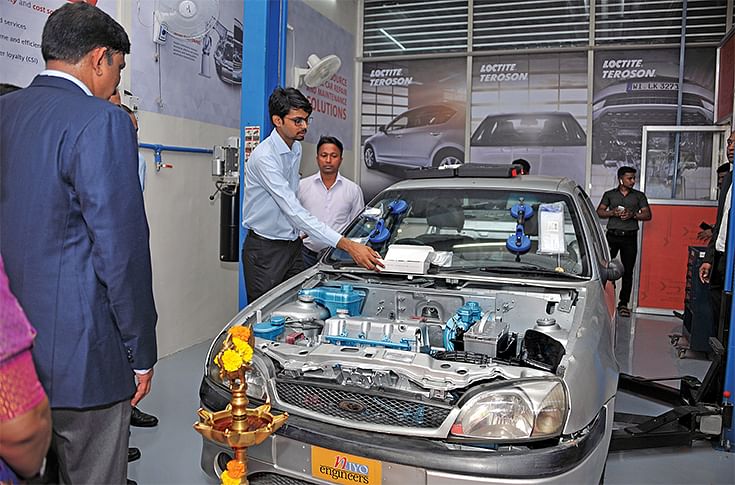
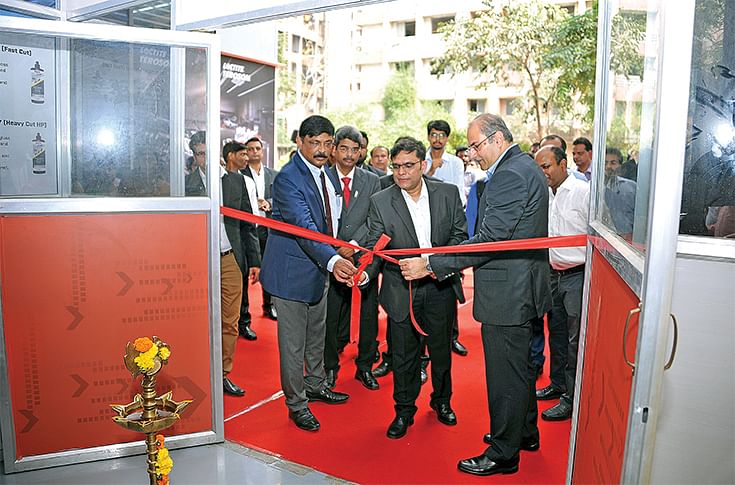
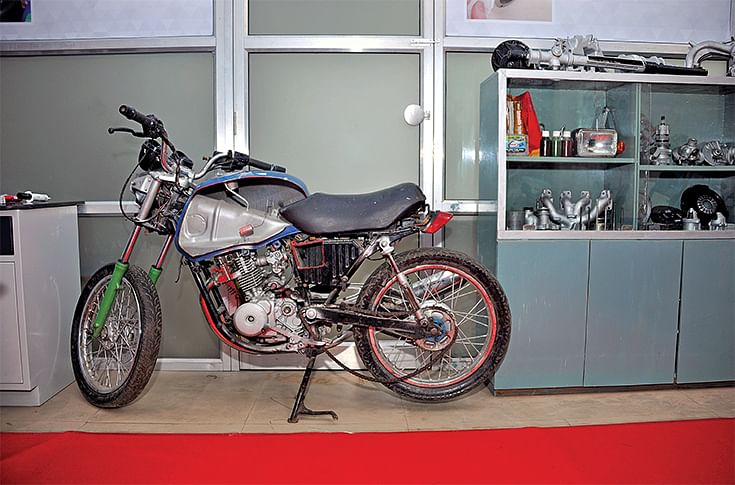
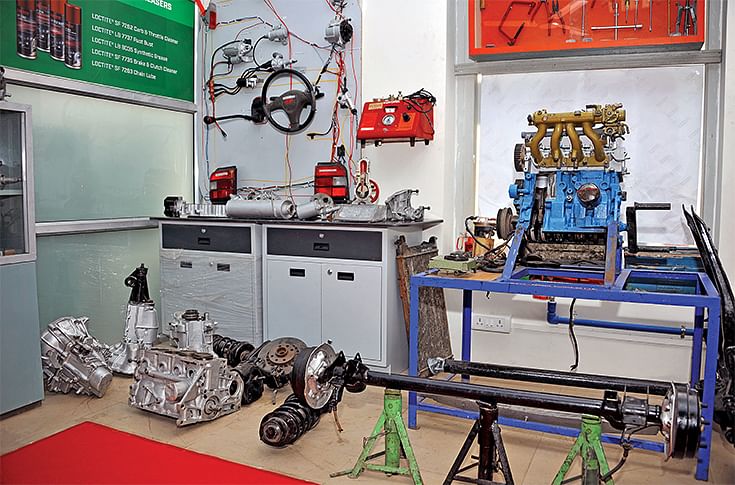
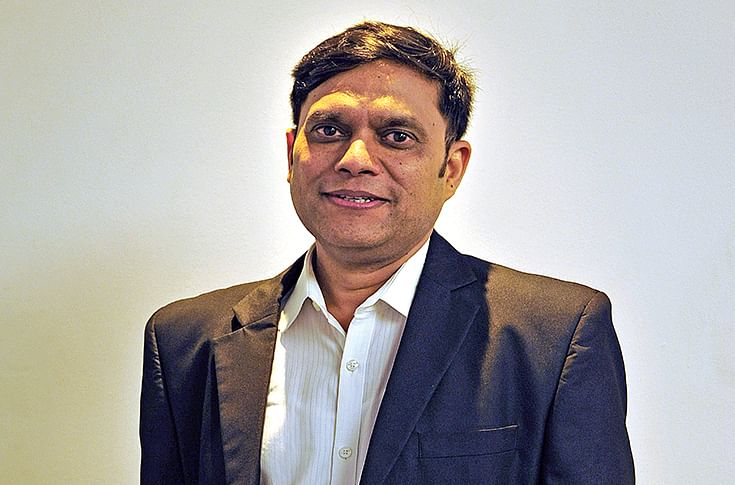

 Shahkar Abidi
Shahkar Abidi


 Kiran Murali
Kiran Murali


